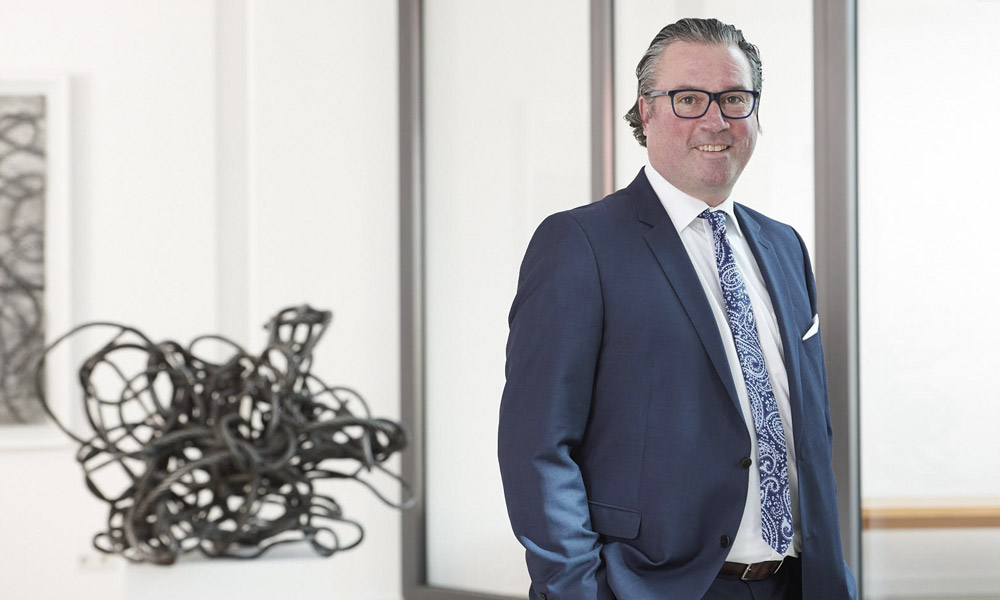Sudwolle: a walk through
the world’s biggest spinner
Engraw: Please tell us a little about Sudwolle's profile. How would you define your company's DNA?
Mirko: Sudwolle group was founded by 2 brothers Wofgang and Erhart Steger in 1966 and continues today to be a family owned company. Back in 1966 they produced only yarns for weaving. 15 years ago the company diversified and today 2020 it produces worsted wool and wool blend yarns for weaving, flat knitting, circular knitting, hosiery, fancy and luxury clothes and technical products.
Side notes: By looking at the numbers one can quantify the size of such a company:
They have 11 warehouses in 8 countries, 13 sales offices in 11 countries produce 18.000 to 20.000 tons annually and together with HOFTEX Group they constitute ERWO Holding AG that employs 4.500 persons in 5 continents and have invested 6 million in solar energy. Undoubtedly we are talking about the global market leader in worsted yarn segment.

Engraw: What type of fibres do you process?
Mirko: Wool, Cashmere, Mohair, Silk, Polyamide, Acrylic and many other.
Engraw: What are the benefits of using wool in the production of these products?
Mirko: The benefits we all know:
• It is a sustainable fibre.
• It has the ability of maintaining the body warm in winter or cool in summer due to the fact that it absorbs moister.
• Good to the environment, it produces no micro pollution plus as it is less washed and has longer life cycle then other garments.
Engraw: What changes and/or habits, arising from the COVID -19 crisis, do you consider the most positive? Which ones would you like to remain?
Mirko: The fact that with no travelling there is less carbon footprint. We have time now to certainly re-think our consumer habits and how they affect the world around us.
Engraw: Do you feel that the consumer has changed as a result of this new scenario? In which ways?
Mirko: The most important change would be that there is less formal wear. The trend is, and will continue to be, to wear comfortable clothes designed to stay home.
Engraw: On a personal level, have you changed any consumer habits?
Mirko: Traceability is on demand. Young generations are interested in knowing the information of what they are purchasing. The farm that delivers the wool, of the sweater they wish to buy, for example.
Engraw: Considering the present global situation, would you like to express any particular message of encouragement to entrepreneurs?
Mirko: • Talk to all people in the supply chain, your clients, there clients and listen to consumer needs.
• Know that the solution may not be easily given and you will have to think outside the box to find it.
• Be aware that you will constantly need to revise where you are and where you are going.